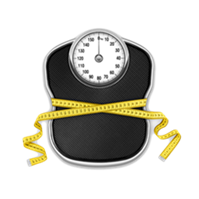Losing weight without exercise is possible, but it’s important to understand that exercise has many benefits beyond just weight loss. Here are some things to consider when trying to lose weight without exercise.
- Caloric deficit: The most important factor in weight loss is creating a caloric deficit, which means consuming fewer calories than you burn. This can be achieved through diet alone.
- Diet: A healthy diet is essential for weight loss. This means eating a balance of nutrient-dense foods and limiting processed foods and added sugars. Eating whole foods, such as fruits, vegetables, lean proteins, and whole grains can help with weight loss.
- Portion control: Paying attention to portion sizes and being mindful of how much you eat can also help with weight loss.
- Hydration: Drinking enough water can help with weight loss by keeping you feeling full and reducing hunger cravings.
- Slow and steady: Slow, steady weight loss is more likely to be sustainable than rapid weight loss. Losing 1-2 pounds per week is a healthy and sustainable rate of weight loss.
- Consult a professional: Consulting with a healthcare professional or registered dietitian can help you develop a safe and effective weight loss plan.
- Limited muscle mass: Without exercise, weight loss may come from a loss of muscle mass as well as fat. This can lead to a lower metabolism and make it harder to maintain weight loss in the long-term.
- Limited benefits: Exercise has many benefits beyond weight loss, such as improving cardiovascular health, building muscle and bone density, and reducing stress.
In conclusion, it is possible to lose weight without exercise, but it’s important to understand that exercise has many benefits beyond just weight loss. To lose weight without exercise, it’s essential to create a caloric deficit through diet, pay attention to portion sizes, drink enough water, and consult with a healthcare professional or registered dietitian. Additionally, it’s essential to remember that slow, steady weight loss is more likely to be sustainable than rapid weight loss. However, without exercise, weight loss may come from a loss of muscle mass as well as fat which may lead to a lower metabolism, making it harder to maintain weight loss in the long-term. Furthermore, exercise has many benefits such as improving cardiovascular health, building muscle and bone density, and reducing stress.







